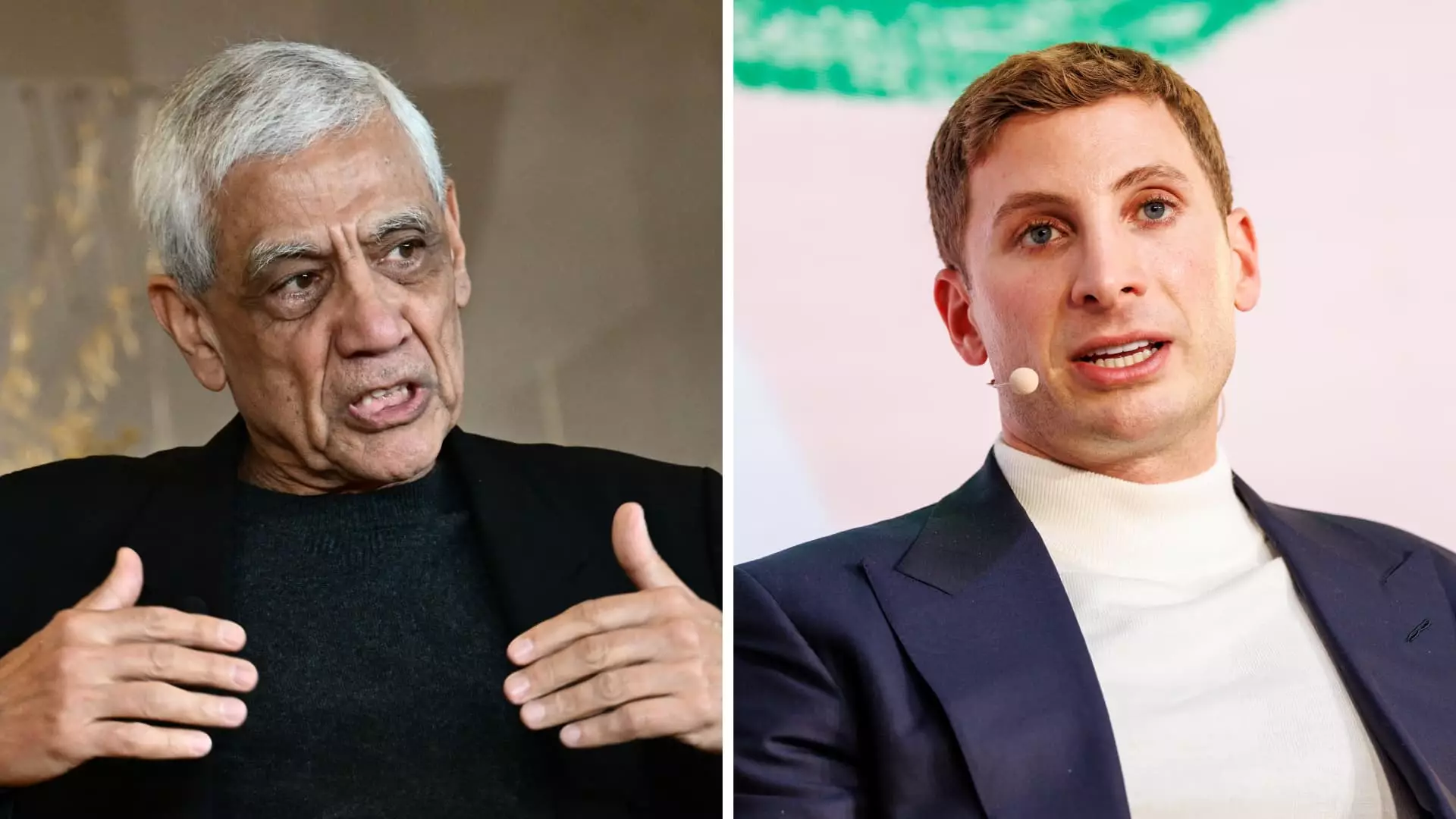Investor Vinod Khosla and Palantir advisor Jacob Helberg have recently penned an open letter calling on senators to pass a bill that would force the divestiture of Bytedance-owned TikTok in the U.S. Their main argument revolves around the assertion that TikTok is a “weapon of war” and therefore poses a significant national security threat. They draw parallels to the foreign ownership restrictions placed on U.S. media outlets and question whether it is appropriate to allow a platform like TikTok, which is widely popular among teens, to be owned by countries like North Korea or Iran.
While some critics have likened the proposed ban to a bill of attainder, which targets a specific individual or entity, Khosla and Helberg defend the bill by highlighting the importance of targeting companies that pose national security risks. They emphasize that the bill passed by the House in March aims to either force Bytedance to find a buyer for TikTok or face a ban in the U.S., and assert that the national security concerns outweigh any potential criticisms of singling out one company.
In response to the proposed bill, Bytedance has taken action to mobilize its user base in opposition. The company urged its millions of users to contact their congressional representatives and voice their opposition to the bill. This effort resulted in an overwhelming flood of phone calls to congressional offices, which Helberg views as a confirmation of the concerns raised about TikTok’s potential risks.
Khosla and Helberg, alongside their involvement with the Hill and Valley Forum, are key figures in advocating for the divestiture of TikTok. They have sought to enlist the support of influential senators such as Chuck Schumer and Maria Cantwell in pushing the bill forward. Despite their efforts, former President Donald Trump’s unexpected opposition to the ban has added a new dimension to the debate. Trump’s concerns about bias and censorship online have led him to express reservations about banning TikTok, citing concerns about giving Meta a monopoly advantage.
The opposition from China’s Foreign Ministry, coupled with the stance that TikTok is a “key political asset,” raises questions about the feasibility of a divestiture. The Chinese government’s strong opposition to the sale of TikTok, which would require an export license, presents a significant hurdle. However, notable investors like Steven Mnuchin and Bobby Kotick have shown interest in acquiring the app, indicating that there is a substantial market value attached to TikTok.
The call for the divestiture of TikTok by Khosla and Helberg raises critical concerns about national security and foreign ownership of popular social media platforms. The debate surrounding the proposed bill highlights the complexities of balancing economic interests with security considerations. The involvement of key figures and the opposing views from various stakeholders underscore the challenges involved in reaching a consensus on the future of TikTok in the U.S. Ultimately, the outcome of this debate will have far-reaching implications for the regulation of social media and technology companies in the country.

